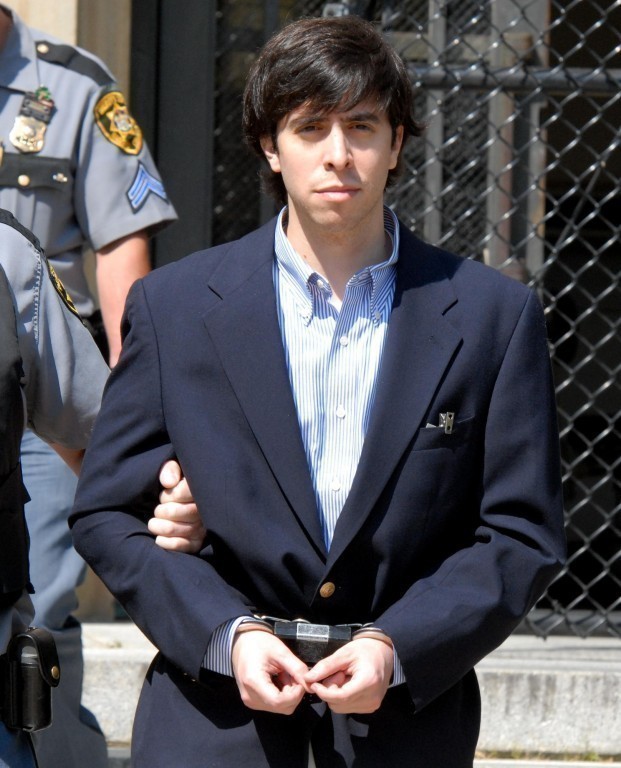Heidgen lawyer: It wasn’t murder
Attorney makes case to appeals court
The Valley Stream man serving a prison sentence for killing two people while driving drunk on the Meadowbrook Parkway eight years ago attempted to have his murder conviction overturned last week in a hearing before the New York State Court of Appeals.
Martin Heidgen was sentenced to 18 years to life after he drove his pickup truck the wrong way on the parkway in July 2005 and slammed head-on into a limousine. The crash killed the driver, 59-year-old Stanley Rabinowitz, and 7-year-old Katie Flynn, of Long Beach. Heidgen had a blood alcohol level of .28, more than three times the legal limit.
The Nassau County district attorney’s office pursued murder charges against Heidgen based on the legal principle of depraved indifference to human life. He was convicted in 2006, and five years later the Supreme Court’s Appellate Division upheld the conviction on a 3-1 vote.
On Oct. 8, the state appeals court heard from the attorneys for Heidgen and two other people who have been convicted of murder following similar incidents. Jillian S. Harrington represented Heidgen.
The judges also considered the appeals of Franklin McPherson, who killed a woman while driving on the wrong side of the Southern State Parkway in October 2007 after drinking at a Hempstead nightclub, and Taliyah Taylor, who killed a pedestrian while driving on the wrong side of a Staten Island street in October 2006 after taking ecstasy, smoking marijuana and drinking a beer.
McPherson is serving a sentence of 25 years to life, and Taylor, 22½ years to life. Maureen McCormick, a prosecutor in the Nassau County district attorney’s office, argued for the murder charges to be upheld in the Heidgen and McPherson cases.
Harrington argued that the jury was wrong to convict Heidgen of murder. “This never should have been charged as a depraved indifference case, because the people simply don’t have the evidence,” she said. “We have no proof that he realized he was going in the wrong direction.”
Harrington made no excuses for Heidgen’s behavior, acknowledging that he had been drinking all day and drove while he was highly intoxicated. Her argument was that because of his level of intoxication, he simply wasn’t mentally capable of knowing he was doing wrong. “This is a tragic accident, and none of our arguments are meant to minimize [its] horrific result …,” she said.
Harrington said that the murder charge should be thrown out, and that Heidgen — who did not attend the hearing — should be sentenced based on a more appropriate charge.
McCormick, of the D.A.’s Vehicular Crimes Bureau, said that Heidgen had been convicted by a jury, and the decision should be upheld. “This jury had a mountain of evidence to tell them that this defendant knew he was going the wrong way,” she said. “Even with the alcohol on board in his system, he’s driving on that roadway. He is confronted with at least six sets of headlights that are coming directly at him in the tunnel of his vision. He didn’t stop. He made no effort to pull over. He did not exhibit that he was confused or lost. He acted boldly and deliberately. He maintained his lane and his speed.”
McCormick also argued that intoxication should not be a defense for depraved indifference. To allow that as an excuse, she said, would go against public policy, and would do little to discourage extreme recklessness.
Judges asked McCormick whether she felt that Heidgen was “overcharged” criminally because of the “horrible consequence” of the accident. She said the resulting deaths were not the basis for charging him with depraved indifference, though she did say that it is a charge rarely brought against defendants in vehicular homicide cases.
Gary Spencer, a spokesman for the Court of Appeals, said that a decision would likely be handed down in mid- to late November.

 51.0°,
Mostly Cloudy
51.0°,
Mostly Cloudy 




